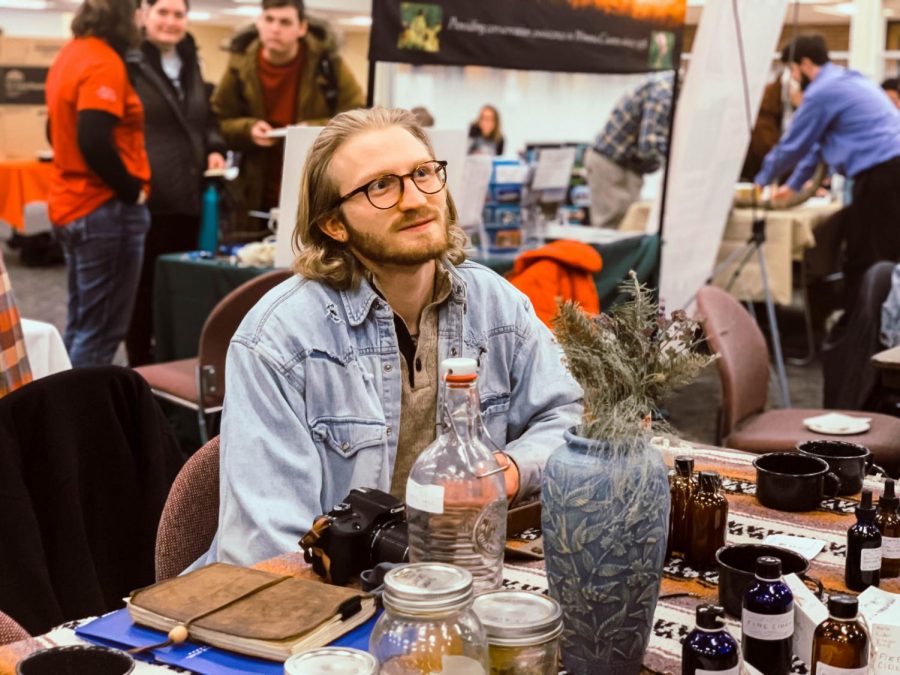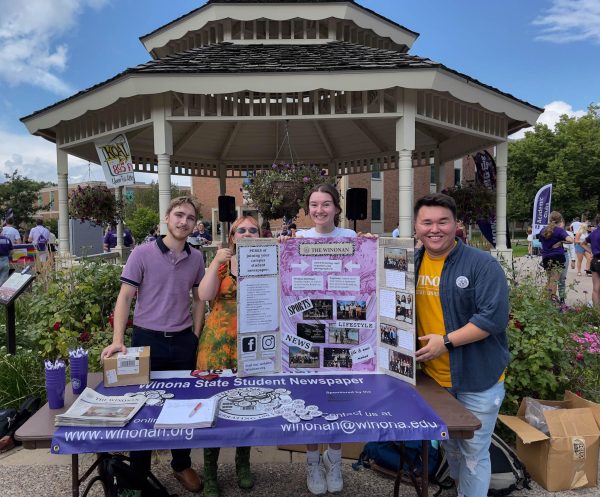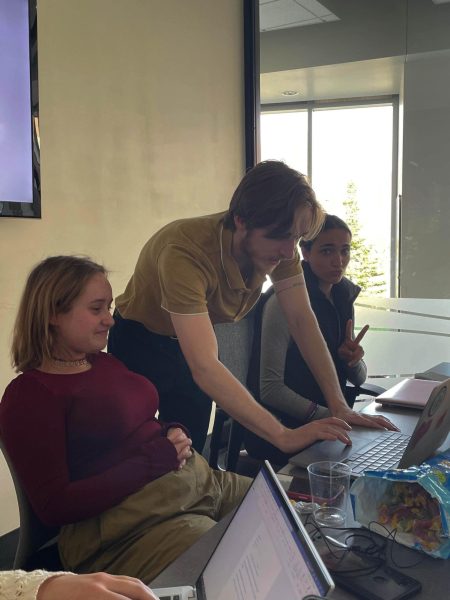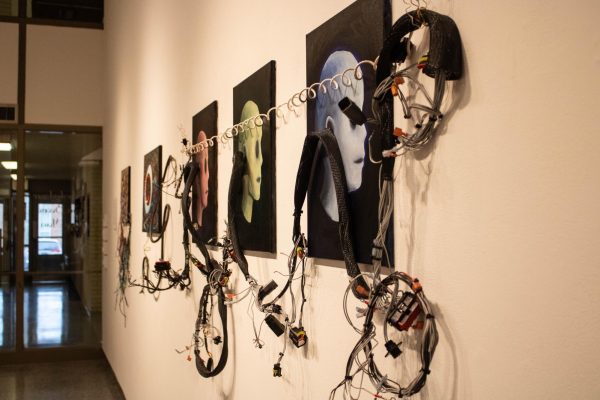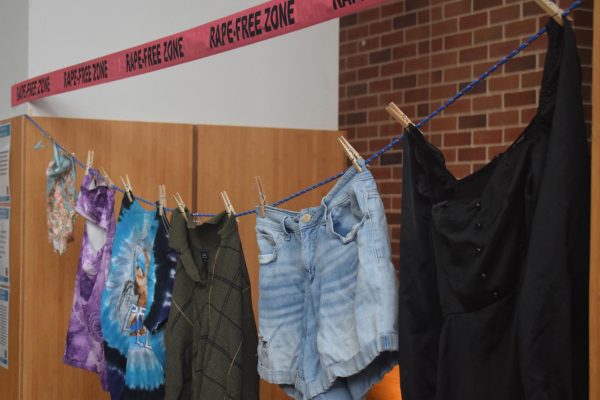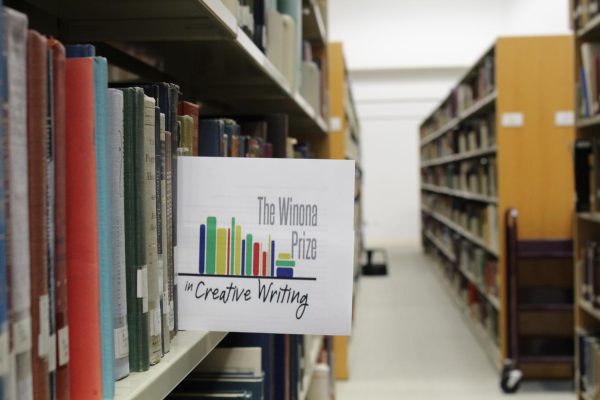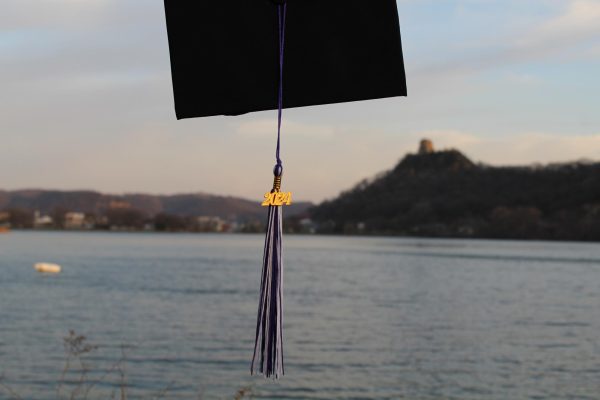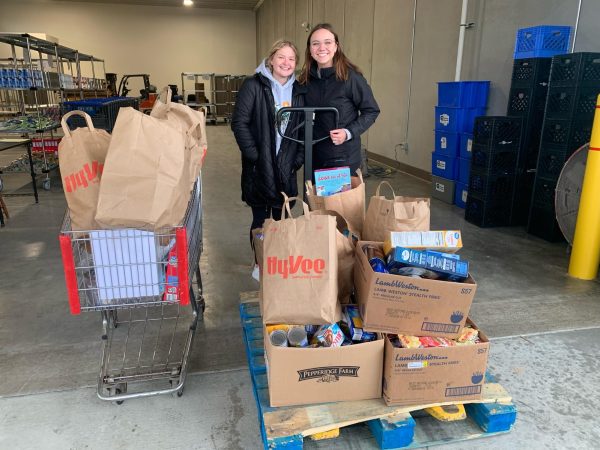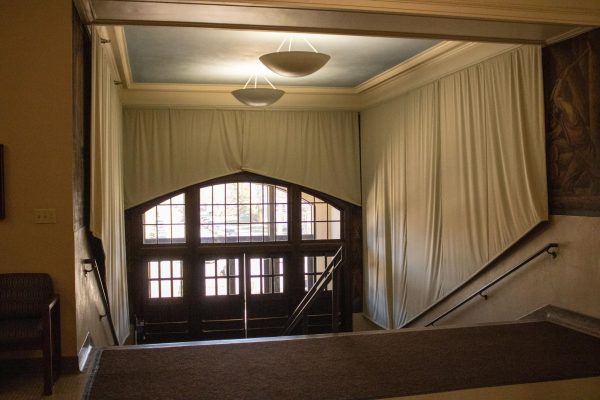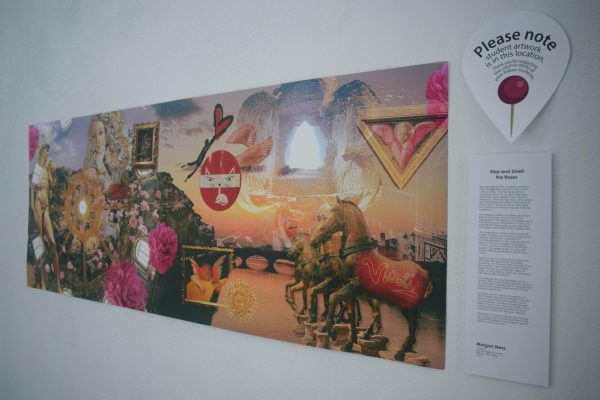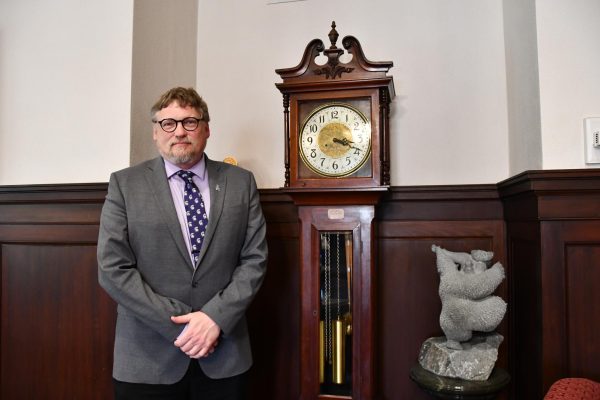Sustainability fair encourages green practices
Jackson Ramsland, senior majoring in public health and nutrition, promotes the idea of using whole plants for medical extract. Ramsland demonstrated how medicinal extracts can be used to boost the immune system and as kidney tonics at the Sustainability Fair in the East Room on Wednesday, Feb 27.
March 6, 2019
The first annual Sustainability Fair was held from 4 – 7 p.m. and was hosted by Winona in Change in the East Room of Kryzsko Commons on Feb. 27.
The event brought together both the Winona State University community and the businesses of Winona in an effort to give others the opportunity to learn about and connect with sustainability-related organizations.
Winona in Change was founded on campus in fall 2016 to innovate and discuss ideas and projects on sustainability. It has since aimed to rehabilitate damage done in the area and to improve and set up a sustainable environment in Winona.
Nathan Engstrom, Winona State’s campus sustainability director, commented on both the fair and what being sustainable means.
“The pursuit of sustainability is now emerging into the pursuit of restoration and resilience,” Engstrom said. “The old paradigm of doing less bad is moving to a pursuit of doing only good.”
Dozens of groups and businesses from on campus and around the community attended the event, collaborating to create an event that will ingrain the importance of sustainability, even on campus.
On-campus organizations included Student Art, Biology Club, Public Health Club, Women in Science and Engineering (WISE), BBB: Biological Honor Society, WSU Sustainability Minor, SEED Garden and Seed Library, the Sustainability Office and Student Green Fee. All offered free samples and information for those attending the fair, including dozens of packets of free seeds from the SEED Garden and an information table on minoring in sustainability at Winona State.
Many Winona businesses attended the event. Including Hillview Urban Agriculture Center, Habitat for Humanity/Habitat ReStore, Midwest Music Store, Prairie Moon Nursery, Blue Heron Coffeehouse, Winona County Soil and Water Conservation District, City of Winona, Winona Climate Action Network and Winona Renewable Energy.
Jackson Ramsland’s Herbal Products hold its own table of information and was run by soon-to-be-graduate, and leader of the SEED Garden effort, Jackson Ramsland.
Winona State has been integrating sustainable efforts for over a decade since the All University Sustainability Committee was created. The Committee has since served as an advisory body, providing support and resources to build a culture of sustainability brought to Winona State’s attention the issue of sustainability.
The SGF was created in 2006 when students at Winona State raised their voices to the school in the name of sustainability. The Committee in turn oversees and helps steer how the funds from the SGF could be used to fund student work, education, outreach and projects including “short-term projects” – needing less than $10,000 for one year – and “long-term projects” – $10,000 or more for projects longer than one year. By 2019, projects funded by the SGF and the Committee have included a community garden, an electric vehicle charging station, new bike racks, reusable water bottles for first-year students and the WSU SEED Garden.
In terms of current efforts, Winona State is working with Apex Efficiency Solutions out of Anoka, Minnesota as a consultant to conduct an assessment of energy efficiency across all campus facilities and what renewable energy opportunities there may be.
“The goal of this study is to develop a plan for self-funded, paid-from-savings energy projects that will allow us to achieve our goal of carbon neutrality by 2030,” Engstrom said.
By pairing with the company, the idea of carbon neutrality comes up. Carbon Neutrality means leaving behind a “net zero carbon footprint,” i.e. eliminating harmful carbon emissions created by humans. This can occur either by balancing carbon emissions with carbon removal or by eliminating carbon emission as a whole.
If things continue on the timeline in place now, the initial assessments by Apex Efficiency Solutions should be complete by June of 2019 and Winona State will have accomplished another footstep in its sustainability journey.
“[Sustainability] is, quite simply, the ability to survive, which I expect is something everyone supports,” Engstrom said. “But what if we had the audacity to thrive, not just get by? The goal, perhaps, is not just sustainability – but something more.”























































